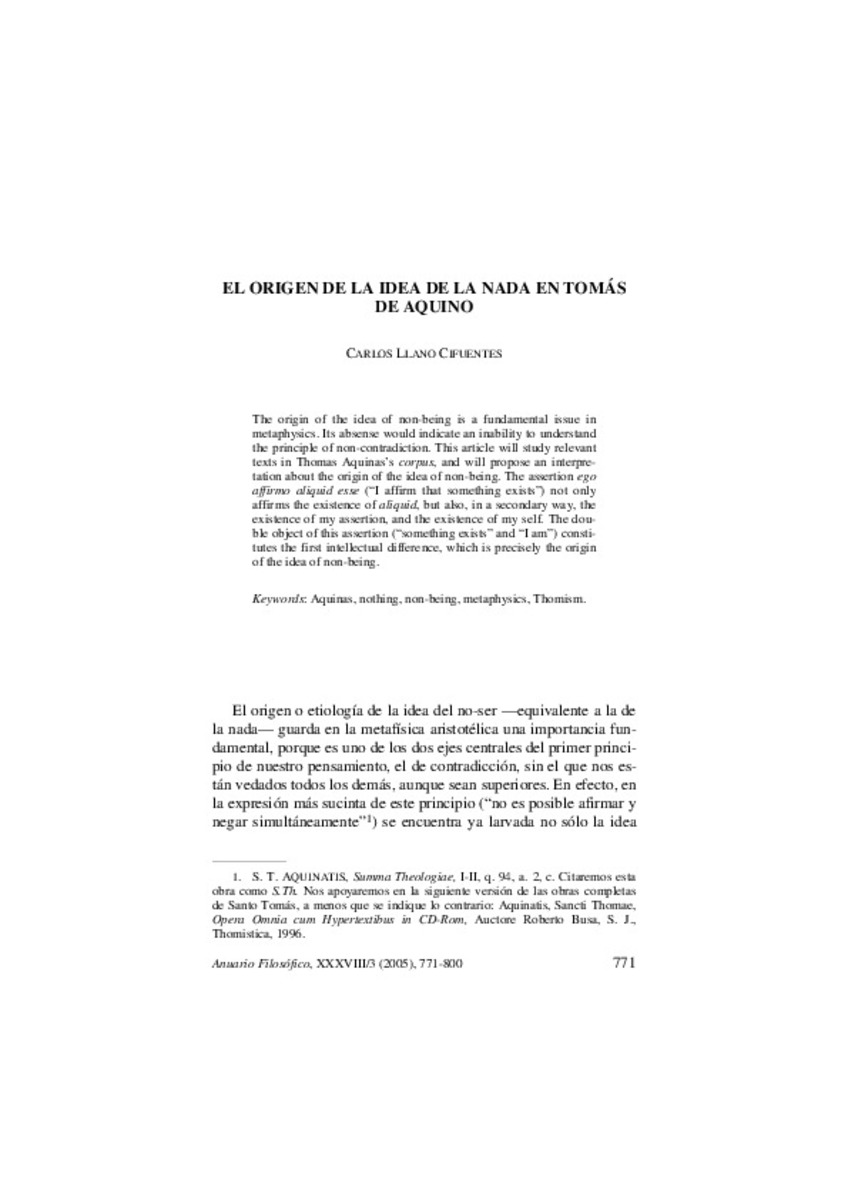Full metadata record
| DC Field | Value | Language |
|---|---|---|
| dc.creator | Llano-Cifuentes, C. (Carlos) | |
| dc.date.accessioned | 2009-12-02T11:20:13Z | - |
| dc.date.available | 2009-12-02T11:20:13Z | - |
| dc.date.issued | 2005 | - |
| dc.identifier.citation | Anuario Filosófico, 2005 (38), 771 - 800 | - |
| dc.identifier.uri | https://hdl.handle.net/10171/5118 | - |
| dc.description.abstract | The origin of the idea of non-being is a fundamental issue in metaphysics. Its absense would indicate an inability to understand the principle of non-contradiction. This article will study relevant texts in Thomas Aquinas’s corpus, and will propose an interpretation about the origin of the idea of non-being. The assertion ego affirmo aliquid esse (“I affirm that something exists”) not only affirms the existence of aliquid, but also, in a secondary way, the existence of my assertion, and the existence of my self. The double object of this assertion (“something exists” and “I am”) constitutes the first intellectual difference, which is precisely the origin of the idea of non-being. | es_ES |
| dc.language.iso | spa | es_ES |
| dc.rights | info:eu-repo/semantics/openAccess | es_ES |
| dc.subject | Aquino, Tomás de | es_ES |
| dc.subject | nada | es_ES |
| dc.subject | Metafísica | es_ES |
| dc.subject | tomismo | es_ES |
| dc.title | El origen de la idea de nada en Tomás de Aquino | es_ES |
| dc.type | info:eu-repo/semantics/article | es_ES |
| dc.identifier.doi | 10.15581/009.38.29323 | es_ES |
Files in This Item:
Statistics and impact
Items in Dadun are protected by copyright, with all rights reserved, unless otherwise indicated.






